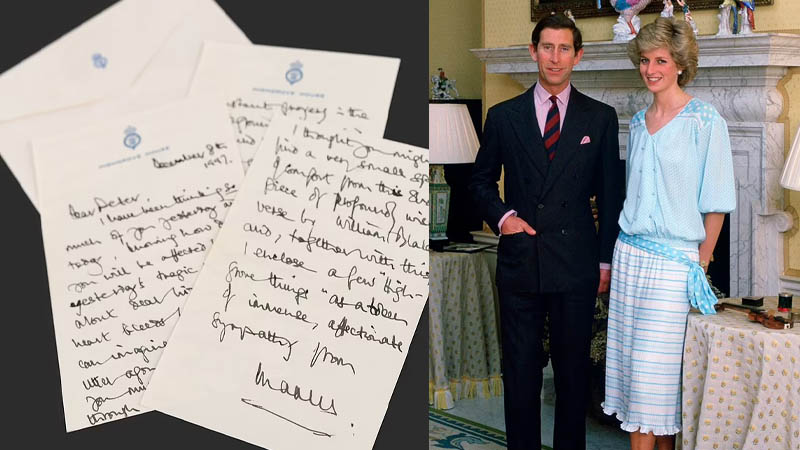A letter penned by King Charles in December 1997 offers a poignant glimpse into how he struggled to cope with the tragic death of his ex-wife, Princess Diana. Dated December 8, 1997, the letter was written just three months after Diana’s untimely passing in a car accident in Paris, where she and her partner, Dodi Fayed, were attempting to escape the paparazzi.
Princess Diana’s death at the age of 36 sent shockwaves around the world and deeply affected her two sons, Prince William and Prince Harry, who were only 15 and 12 at the time. Although Charles and Diana had ended their tumultuous marriage in 1996, the letter reveals that her death left a profound impact on him. In his correspondence with Peter Houghton, Charles speaks of an “unbearable emptiness” following the horrific accident.
The letter also suggests that Houghton was grappling with his own grief. Charles expresses deep sympathy, writing that his heart “bleeds” for Houghton after the death of “dear Liz,” and that he could imagine the “agony” Houghton was experiencing. Charles adds that he “longed to wave a magic wand to transform the situation,” highlighting the helplessness often felt in the face of profound loss.
Reflecting on Diana’s death, Charles speaks of the “bewilderment and confusion that accompanies the removal of someone so young from the world.” The three-page letter, signed simply “Charles,” was marked for hand delivery, underscoring its personal and intimate nature.
This heartfelt letter recently sold at auction for £1,500, according to the Daily Mail. The sale was handled by American company RR Auction, whose spokesperson noted the emotional weight of the letter. “This lengthy handwritten letter to ‘Peter’ expresses his sympathy upon the death of a loved one. Charles was likely particularly emotional at the time he wrote the letter, as Princess Diana had tragically passed away just a few months before in August 1997.”
The letter serves as a rare and intimate glimpse into the private grief of a man who, despite being a member of the royal family, was deeply affected by the loss of Diana, a woman who had once been a central figure in his life. It also highlights the shared human experience of grief, connecting Charles’s personal loss to the broader, universal struggle to make sense of death and the void it leaves behind.



